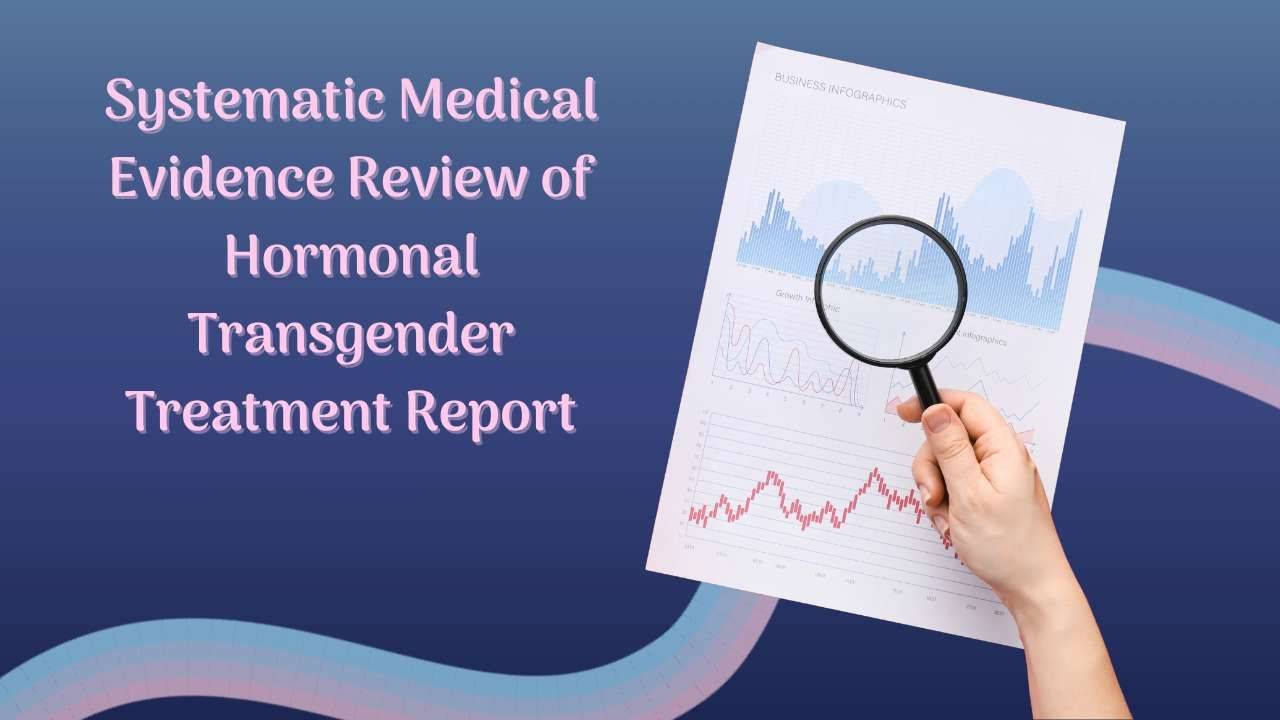Utah’s 2025 Evidence Review on Medical Care for Trans People: What Prescribing Clinicians Need to Know
Oct 13, 2025
In May 2025, Utah released a 1,000‑page legislatively mandated evidence review of medical care for transgender people, focusing on adolescents. Unlike previous politically motivated reports, this systematic review was methodologically rigorous, transparent, and ultimately affirms what clinicians already know: medical care for trans people is necessary, evidence-based, and improves health outcomes.
This blog distills the key findings and clinical implications for prescribing clinicians.
Key Findings from the Utah Review
-
Banning medical care for trans people is not supported by evidence.
The authors clearly conclude:“Policies to prevent access to and use of GAHT for treatment of GD in pediatric patients cannot be justified based on the quantity or quality of medical science findings or concerns about potential regret.”
-
Medical care improves mental health and psychosocial outcomes.
-
Gender affirming hormone therapy is associated with lower rates of depression, suicidality, and distress compared to untreated TGD adolescents.
-
Improved psychosocial functioning and body congruence were observed across studies.
-
Physiologic changes (e.g., bone density, lipid profiles) remained within normative population ranges and were not associated with clinically significant harm.
-
-
Rates of regret and discontinuation are low.
-
Discontinuation of medical care is uncommon and often tied to external barriers, not regret.
-
Among those who do stop, many later restart. The data supports persistence of affirmed gender identity among adolescents accessing medical care.
-
-
Review methodology was robust and transparent.
-
The authors, including licensed pharmacists and public health experts, are named.
-
They employed recognized risk-of-bias tools and transparent inclusion/exclusion criteria.
-
Unlike politicized reports from Florida or Texas, Utah’s process and conclusions are aligned with ethical research standards.
-
-
Findings reinforce established clinical guidelines.
-
WPATH and Endocrine Society guidelines are validated by the review’s findings.
-
Puberty suppression after Tanner stage 2, and initiation of hormone therapy when appropriate, remain standard practice.
-
The review graded multiple components of medical care as having “strong” evidentiary support.
-
What This Means for Prescribing Clinicians
-
Medical necessity is clear. This review bolsters the clinical and legal case for continuing to provide medical care for transgender adolescents — not as optional or elective, but as essential healthcare.
-
Stay grounded in evidence. While politicized language seeks to sow doubt, this review supports what the best clinical guidelines already reflect: gender-specific medical care saves lives and improves well-being.
-
Recognize barriers, not regret. Discontinuation of care often reflects systemic issues (cost, insurance, stigma), not a change in gender identity. Avoid pathologizing treatment pauses.
-
Use this report in advocacy. Reference Utah’s findings in prior authorization requests, policy conversations, and organizational justifications for offering or expanding medical care access.
-
Continue critical appraisal. The review flagged weaknesses in some existing studies (small samples, short follow-up). As prescribers, we must interpret emerging data through a lens of both evidence quality and patient-centered application.
Cautions and Context
-
Data gaps remain. As with much of transgender health research, long-term outcome data is limited, especially across diverse racial, geographic, and socioeconomic populations.
-
Adolescent-specific data should not be extrapolated to adults or prepubertal children. The review focused on adolescents; applying its findings outside that group would be methodologically inappropriate.
-
Healthcare systems still cause harm. The presence of medical evidence does not eliminate stigma, gatekeeping, or violence in care systems. Respecting transgender adolescents requires structural change, not just treatment options.
A Call to Action for Gender-Inclusive Prescribers
-
Keep offering this care. The science backs you. So do your patients.
-
Build multidisciplinary networks with nurses, mental health professionals, and others providing affirming care.
-
Document informed consent and risk discussions thoroughly — and trust your patients.
-
Advocate for policy and institutional alignment with established standards.
-
Center dignity, autonomy, and access. Your role is not to “protect” — it’s to respect.
SUBSCRIBE FOR MONTHLY UPDATES
QueerCME distriputes a monthly newsletter which details our content updates. We also offer free live stream didactic sessions on topics in gender affirming healthcare, so we send out reminders around those as well.
We hate SPAM. We will never sell your information, for any reason.

